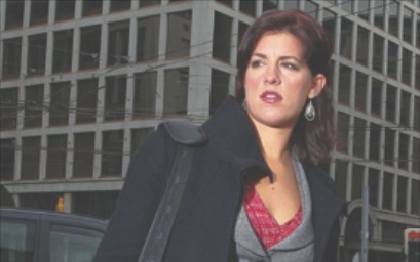Page 12 • (126 results in 0.068 seconds)
-
. Samuel Torvend St. Benedict of Nursia “It’s very clear in the Rule that every community should be self-sustaining,” said Dr. Torvend. “There were no grocery stores or wholesale food suppliers in the early medieval world. You ate and drank what you grew.” The stability of rural monastic life was an appealing alternative to the urban decay and ongoing military conflict of medieval Italy. “They had no one to rely on but themselves.” Sustainability was necessary in order for these monastic communities to
-
the year. Professor Samuel Torvend, Speaking at the Lutheran Studies Conference in 2014 “It’s very clear in the Rule that every community should be self-sustaining,” said Dr. Torvend. “There were no grocery stores or wholesale food suppliers in the early medieval world. You ate and drank what you grew.” The stability of rural monastic life was an appealing alternative to the urban decay and ongoing military conflict of medieval Italy. “They had no one to rely on but themselves.” St. Benedict of
-

herself now, graduating in 2007 and living in Geneva, Switzerland. She’s earning a Master of Advanced Studies in International and European Security there, studying international law, terrorism and energy security, among other subjects. She also is studying press freedoms in regions of global conflict, with a focus on the increased intimidation, and sometimes assassination, of journalists. And, she’s also working as a freelance journalist at the United Nations’ European headquarters. It is a pretty
-

revolving door,” Surla says in her capstone. Moral distress occurs when nurses feel unable to do the right thing. Contributing factors include inadequate staffing, ineffective communication and a lack of resources. This internal conflict can lead to physical, emotional and spiritual suffering, she notes. Eventually, burnout occurs, a common outcome for nurses working in correctional settings. Maria Surla '23 at the School of Nursing's BSN graduate pinning ceremony on May 27, 2023.× Her capstone draws on
-
the kind of knowing that cannot be unknown. For our students this is a process of reconstituting themselves as human beings, a process of disintegration and reintegration, for some welcome, for others not. For all, however, it is a process that usually involves their experiencing a sense of tension and even betrayal of family, peer group, social class, ethnic community, religious denomination, or political ideology. Whether and how students negotiate this process depends on many things: among them
-

justice. I remember reading about apartheid and the Palestinian-Israeli conflict and really becoming aware of the hatred and injustice in the world. Dr. (Karen) Travis introduced me to public health and showed me a way to use my skills in a field that I was passionate about. My ways of thinking were influenced by my economics classes, I often stop and think about the incentive structures that are leading people to make certain decisions, or about the economics of prevention. I also reinforced my value
-
religion. – from the Guggenheim Museum website Smithsonian American Art Museum. (n.d.) Tiffany Chung: Vietnam, Past is Prologue. https://americanart.si.edu/exhibitions/chung Tiffany Chung (b. 1969, Đà Nẵng, Viet Nam) is known for her multimedia work that explores migration, conflict, and shifting geographies in the wake of political and natural upheavals. Vietnam, Past Is Prologue makes visible a history hidden in plain sight for the past forty-five years. Her subject, the War in Vietnam (1955–1975
-
language with comfort and discomfort, Alys delicately forms a path for herself between class and national allegiances. Pride and prejudice around social classes form the basis for Alys and Darsee’s initial dislike of each other as it does between Elizabeth and Darcy, yet Alys’s conflict with language is part of what ultimately makes Darsee so appealing to her. He has studied outside of Pakistan, read international literature extensively, and feels caught between worlds just as she does. His gift to her
-
, Animal Liberation: A New Ethics for Our Treatment of Animals (Avon 1975; 2nd ed. 1990), Peter Singer gave a new academic respectability to animal issues and stimulated a renewed vigor in social-action campaigns on behalf of animals. He also explicitly linked animals with other social liberation movements. These other movements are now well established in universities with vigorous multi-disciplinary programs in gender studies, ethnic studies, and so forth. Not so animals. As far as I know, there is
-
conflict. She is an inspiring speaker that examined intersectionality of issues, the action we all can take to make a difference, and the power of uplifting marginalized voices. One of the best parts of PLU is that there are always great speakers and events going on! While I was sitting in KHP listening to Ms. Noujaim, I thought to myself, ‘Wow, I am so incredibly lucky to be at a school that brings amazing people to this campus.’ I love that feeling and the numerous opportunities!” Advice for first
Do you have any feedback for us? If so, feel free to use our Feedback Form.


